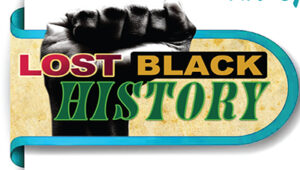By Don Valentine
The National Negro Business League (NNBL), was the brainchild of Booker T. Washington. It was founded in 1900, with the mission statement, “Black America should improve itself from within to earn White America’s acceptance…” The NNBL promotes Black-owned businesses as the key to economic advancement. The league, which predated the United States Chamber of Commerce by 12 years, was formally incorporated in 1901 in New York, and successfully established hundreds of chapters across the United States. In 1966, the National Negro Business League was reincorporated in Washington, D.C. and renamed the National Business League.
Black Past noted the influence of Booker T. Washington, “ Members in the league included small business owners, farmers, doctors, lawyers, craftsmen, and other professionals. The league maintained directories for all major US cities and incorporated African American contacts in numerous businesses.” NNBL’s biggest successes actually came in the North, such as with Julius Groves, the “Negro Potato King,” and H. C. Haynes, inventor of the Haynes Razor Strop. Prominent members of the National Negro Business League included C.C. Spaulding, John L. Webb, and Madam C.J. Walker.
At the time the league was formed a national debate had been ongoing between Mr. Washington and Dr. DuBois, about how best to assimilate the millions of former slaves into mainstream America. Dr. Du Bois maintained that education and civil rights were the only way to equality. Lack of education from the “Talented Tenth,” would simply serve to reinforce the notion of Black people as second-class citizens.
The Encyclopedia of Alabama chronicled the support of White philanthropists: “The NNBL relied on donations from wealthy White donors such as Andrew Carnegie and Julius Rosenwald that were used to establish businesses. NNBL was considered a failure by many in its early years because donors gave small-scale loans but did little to educate black business owners about how to run their businesses or sustain them through the acquisition of credit lines.” Because Mr. Washington’s program appeased Whites, substantial contributions from White philanthropists were given to Tuskegee. That caused other institutions to adopt the Washington philosophy. His prestige grew to the point where he was regarded as the spokesman for the entire Black community. The White support aided Mr. Washington to become an outstanding Black leader not only in the fields of education and philanthropy, but in business and labor relations, politics and all public affairs. The NNBL still exists today in Atlanta, Georgia with a second office in Washington, D.C.


